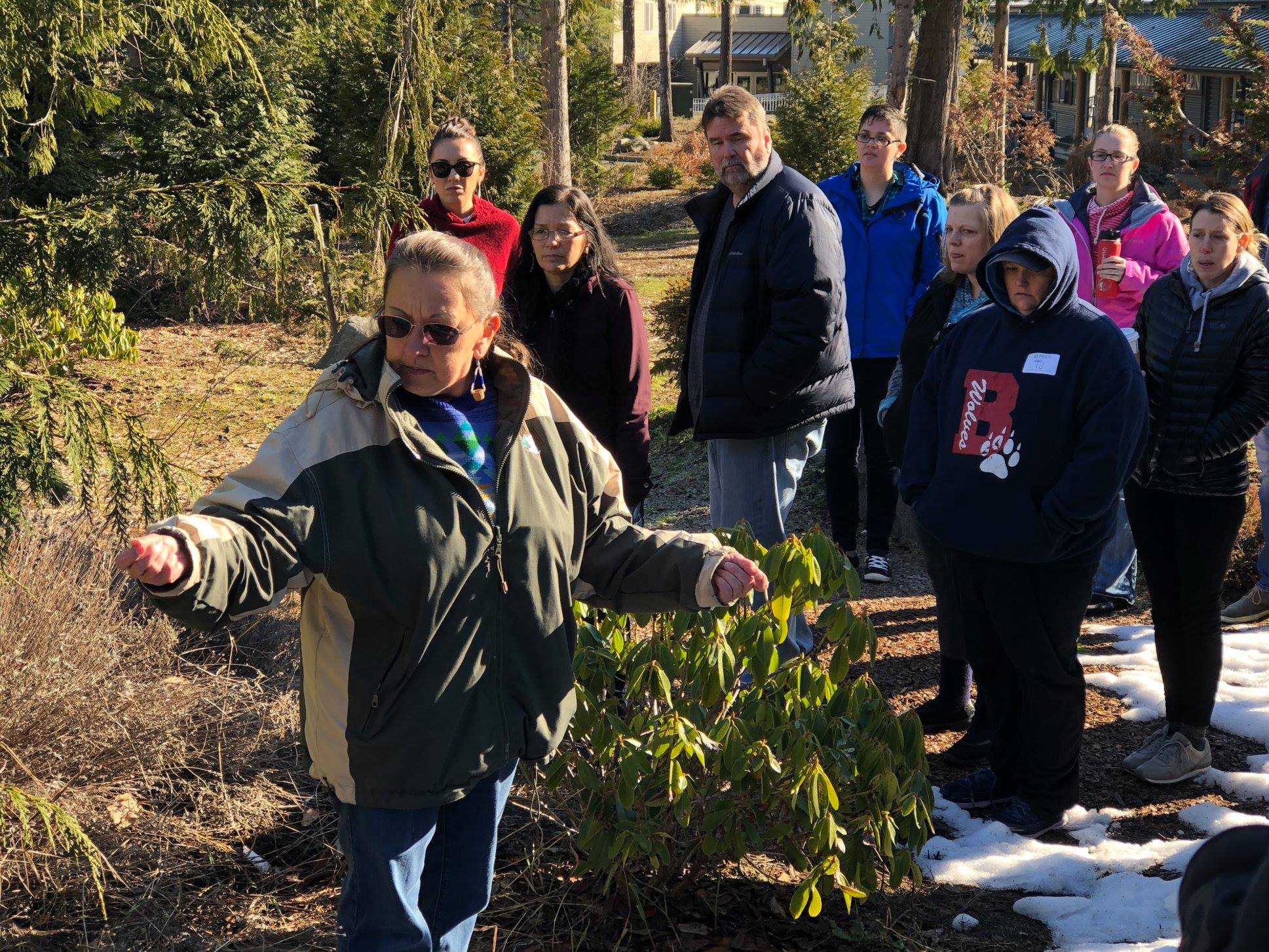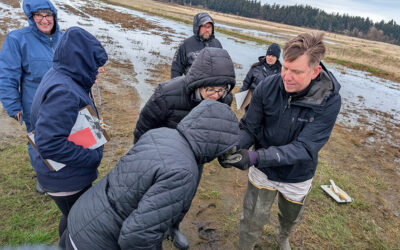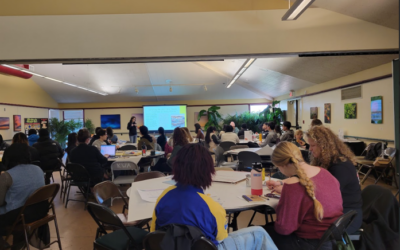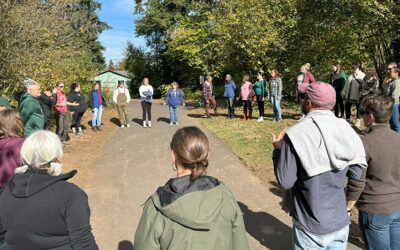Participants began the PEI-hosted workshop ‘Locally Relevant 3-D Climate Science Storylines’, held on March 2nd at the Squaxin Island Tribe Museum, on a trail next to a lake that the Tribe created to cultivate traditionally-used native plant species. There, Tribal educators Cinnamon Bear Enos, Aleta Poste, Bev Hawkes and her granddaughter Jada, and Sally Brownfield guided them in an opportunity to become grounded in the surrounding place. This included sharing information about the history of the land; the medicinal, environmental and artistic benefits offered by the native plants; and the importance of snow to Washington’s ecology.
Fourth- and fifth-grade educators were invited to the workshop to become part of a team who will be piloting the ‘Erosion’ and ‘Food Waste’ storylines that PEI and PEI workshop participants have developed as part of the #ClimeTimeWA Initiative. Partners in the project include Braided Education Consulting, Cinnamon Bear, the Muckleshoot Indian Tribe, the Suquamish Tribe, the Office of Superintendent of Public Instruction (OSPI)‘s Office of Native Education and ESD 112 , Capital Region ESD 113, NEWESD 101, and ESDs 114, 121 and 101.

PEI staff and faculty modeled several hands-on activities that teachers can incorporate in the implementation of the storylines. Teachers were also provided time to talk through how to implement the storylines, anticipating challenges and working through solutions as a group. Each unit of the storyline incorporates the following elements: NGSS aligned 3-dimensional instruction, Indigenous ways of knowing, locally relevant activities, and solutions-oriented learning based on research from Project Drawdown.

76% of participants reported that the workshop broadened/deepened their existing knowledge of instructional practices to make learning experiences more inclusive for Native American students.
We extend a warm thank you to the hard-working talented teachers who participated, to the Squaxin Island Tribe Museum, to all of our project partners, and especially to the Tribal educators for sharing your valuable knowledge.




